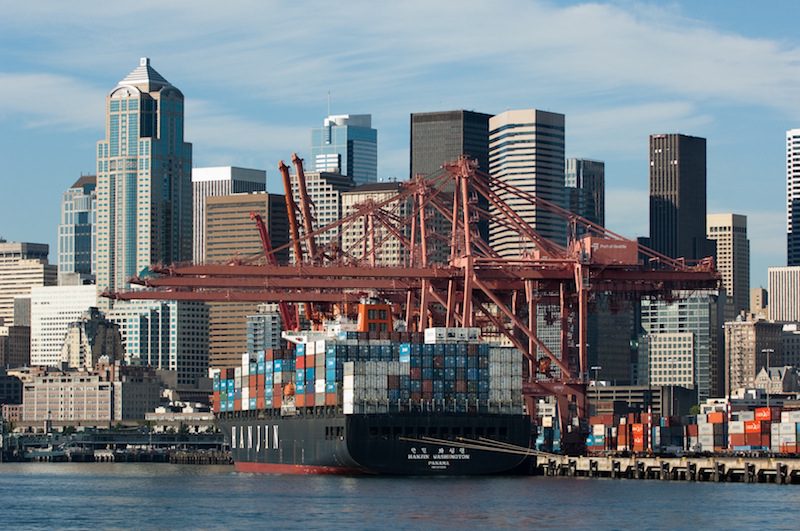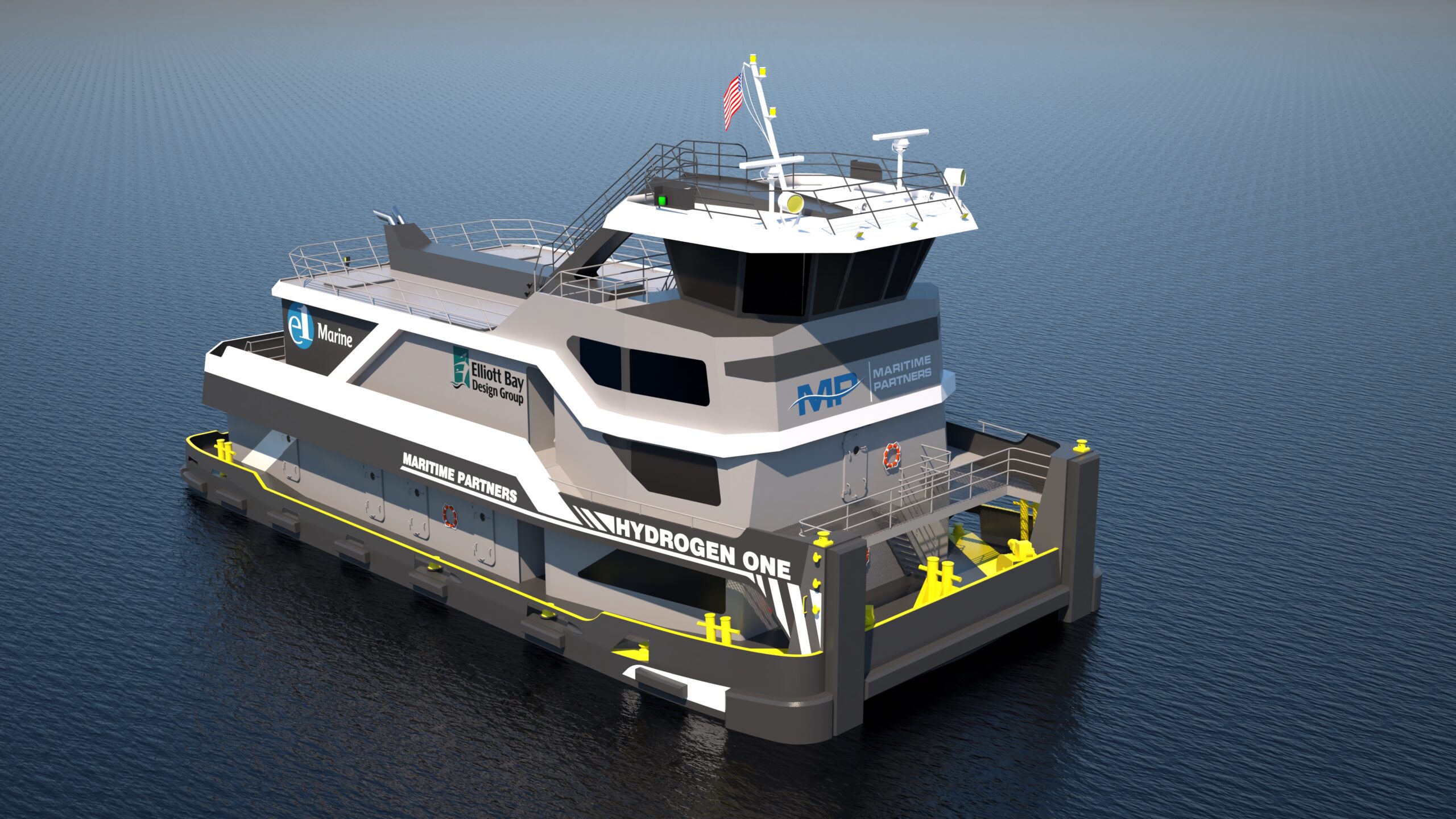File photo of a Hanjin containership at the Port of Seattle. Image credit: Port of Seattle/Don Wilson
 COPENHAGEN, Nov 21 (Reuters) – Container shipping lines have agreed to raise Asia-U.S. freight rates in two stages, by $200 per 40-foot container (FEU) from Dec. 20 and then by a further $300 per FEU from Jan. 15, in an effort to halt current losses, their organisation TSA said.
COPENHAGEN, Nov 21 (Reuters) – Container shipping lines have agreed to raise Asia-U.S. freight rates in two stages, by $200 per 40-foot container (FEU) from Dec. 20 and then by a further $300 per FEU from Jan. 15, in an effort to halt current losses, their organisation TSA said.
Transpacific container shipping lines regard late holiday season shipments in December and the pre-Lunar New Year period in January as pockets of particular strength in the Asia-U.S. trade and as an opportunity for badly needed revenue recovery.
The members of the TSA (Transpacific Stabilization Agreement) include the world’s biggest container shipping lines, such as Denmark’s Maersk, privately owned Switzerland-based Mediterranean Shipping Company (MSC), French privately held CMA CGM, China’s COSCO, Korea’s Hanjin Shipping and others.
“The central truth in this market is that every carrier is operating at a loss,” TSA executive administrator Brian Conrad said in a statement on Thursday.
Spot freight rates are calculated and published every week by Shanghai Shipping Exchange. Last week rates for transport of 40-foot containers from Asia to U.S. West Coast stood at $3,770.
Conrad acknowledged the difficulty of raising rates in a highly competitive market, but said that pressures on carriers from capital markets and parent companies to improve profitability are gradually overtaking supply-demand considerations.
The world’s biggest container shipping company, Maersk Line, a unit of A.P. Moller-Maersk, said earlier this week that it intend to increase rates on the busy route between Asia and northern Europe.
Other major container shipping companies have in recent weeks also announced higher prices that will take affect Dec. 15.
Freight rates have plunged to loss-making levels this year as a result of overcapacity in the market.
Founded in 1989, the TSA calls itself a “research and discussion forum of major container shipping lines” serving the trade from Asia to the United States.
Liner shipping was previously organised in similar groups called “liner conferences”, which met to discuss market conditions, freight rates and other common concerns.
But the European Union decided in 2006 to ban the practice as against competition rules and the ban took effect in 2008. (Reporting by Ole Mikkelsen; Editing by Anthony Barker)
(c) 2013 Thomson Reuters, All Rights Reserved

 Join The Club
Join The Club











